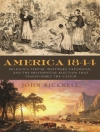From the Victorian period to the present, images of the policeman have played a prominent role in the literature of empire, shaping popular perceptions of colonial policing. This book covers and compares the different ways and means that were employed in policing policies from 1830 to 1940. Countries covered range from Ireland, Australia, Africa and India to New Zealand and the Caribbean. As patterns of authority, of accountability and of consent, control and coercion evolved in each colony the general trend was towards a greater concentration of police time upon crime. The most important aspect of imperial linkage in colonial policing was the movement of personnel from one colony to another. To evaluate the precise role of the ‘Irish model’ in colonial police forces is at present probably beyond the powers of any one scholar. Policing in Queensland played a vital role in the construction of the colonial social order. In 1886 the constabulary was split by legislation into the New Zealand Police Force and the standing army or Permanent Militia. The nature of the British influence in the Klondike gold rush may be seen both in the policy of the government and in the actions of the men sent to enforce it. The book also overviews the role of policing in guarding the Gold Coast, police support in 1954 Sudan, Orange River Colony, Colonial Mombasa and Kenya, as well as and nineteenth-century rural India.
David Anderson & David Killingray
Policing the empire [PDF ebook]
Government, authority and control, 1830-1940
Policing the empire [PDF ebook]
Government, authority and control, 1830-1940
Achetez cet ebook et obtenez-en 1 de plus GRATUITEMENT !
Langue Anglais ● Format PDF ● Pages 240 ● ISBN 9781526123695 ● Taille du fichier 8.0 MB ● Éditeur David Anderson & David Killingray ● Maison d’édition Manchester University Press ● Lieu Manchester ● Pays GB ● Publié 2017 ● Téléchargeable 24 mois ● Devise EUR ● ID 7649161 ● Protection contre la copie Adobe DRM
Nécessite un lecteur de livre électronique compatible DRM












